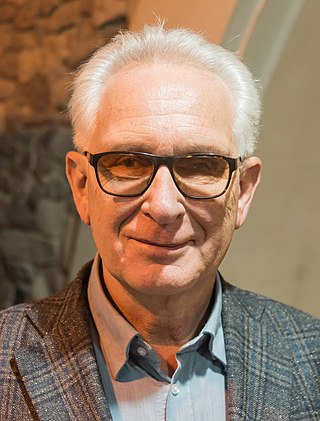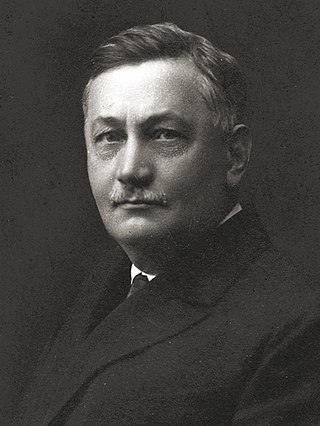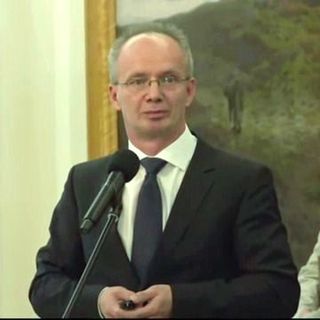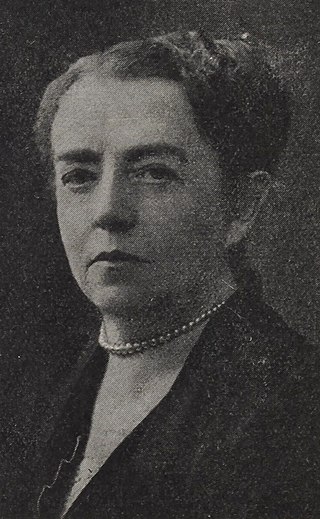Related Research Articles

World War II saw the cultivation of underground education in Poland. Secretly conducted education prepared scholars and workers for the postwar reconstruction of Poland and countered German and Soviet threats to eradicate Polish culture.

Karol Cyryl Modzelewski was a Polish historian, writer, politician and academic of Russian origin, one of the leading figures of the democratic opposition in the Polish People's Republic from the 1960s to the 1980s.

Prof. Andrzej Paczkowski is a Polish historian. Professor of Collegium Civitas, director of Modern History Studies in the Political Institute of Polish Academy of Sciences, member of Collegium of Institute of National Remembrance.

Andrzej Chwalba is a Polish historian. Professor of history at the Jagiellonian University, the university's prorector of didactics (1999-2002), head of the Institute of Social and Religious History of Europe in 19th and 20th century, and the deacon and prodeacon of Department of History.

Idzi Jan Panic is Polish historian, professor at the University of Silesia. He is specializing in history of Cieszyn Silesia and medieval Poland.

Henryk Bohdan Samsonowicz was a Polish historian specializing in medieval Poland, prolific writer, and professor of the University of Warsaw. In 1989–1990, he was the minister of education in the government of prime minister Tadeusz Mazowiecki.
Stanisław Salmonowicz is a Polish historian, professor of the Nicolaus Copernicus University in Toruń, and a member of the Polish Academy of Learning and History Institute of the Polish Academy of Sciences.

Władysław Heinrich was a Polish historian of philosophy, psychologist, professor at Kraków University and member of the Polish Academy of Learning.
Prof. dr hab. Szymon Rudnicki is a Polish historian. He specializes in the history of the Second Polish Republic, right-wing political movements of that era, and the Polish-Jewish relations.

Krzysztof Szwagrzyk is a Polish historian, publicist and writer, since 1979 living and working in Wrocław, Poland. Szwagrzyk received his doctoral degree in 20th-century history from the University of Wrocław in 1996. He serves as president of the Public Information Bureau of the Institute of National Remembrance regional chapter in Wrocław, and is the author of numerous scientific papers and several monographs about contemporary Polish history, with special focus on the system of political repressions during the period of Stalinism in Poland, and the anti-communist structures in Lower Silesia in the years of 1945–1956. He's the author of screenplay Golgota Wrocławska.
Stefan Maria Kuczyński, pen name Włodzimierz Bart, was a Polish historian and academic specializing in the medieval history of the Kingdom of Poland during the Piast dynasty and the Jagiellon dynasty, especially in the period of King Władysław II Jagiełło. After World War II he served as docent at the Uniwersytet Jagielloński (1945), then associate professor of Uniwersytet Wrocławski (1946), followed by professor of Uniwersytet Łódzki (1954–1969), and professor of Uniwersytet Śląski (1969–1982). Kuczyński also served as editor-in-chief of illustrated monthly Śląsk in 1946–1948, published in Jelenia Góra, and the scientific journal Nauka i Sztuka, one of the first of its kind in postwar Poland.

Teodora Męczkowska, née Oppman, was a Polish feminist, suffragette and educator.
Jolanta Maria Żyndul is a Polish historian, a specialist on modern Jewish history and Polish-Jewish relations in 19th and 20th century.
Rudolf Kern was an important designer and builder in Bydgoszcz, at the end of the Prussian period of the city. Most his works have been realized between 1903 and 1914. His artistic style relates to Art Nouveau and Modernism.
The Alfonse pogrom was a three-day riot in Warsaw, Poland. The violence led to the destruction of several dozen brothels, and to as many as 15 deaths. Accounts and analyses of the event differ with regard to its goals and participants.

Jan Krzysztof Żaryn is a Polish historian, professor and politician, who was a Senator in the Senate of Poland from 2015 to 2019.
Jerzy Jedlicki was a Polish historian of ideas, Humanities Professor and an anti-communist activist during the times of the Polish People's Republic.

Józef Weyssenhoff Square is an open place in the downtown district of Bydgoszcz, Poland; several of its buildings are registered on the Kuyavian-Pomeranian Voivodeship Heritage List.

Jan Oskar Kieniewicz is a Polish historian, diplomat and humanities professor. He specialised in the history of India and European, Spanish and Polish history. He is a member of the Collegium Invisibile and the jury for the KLIO Award.
Michał Tymowski is a Polish historian, professor of the humanities and an academic at the University of Warsaw. He specialises in the history of Africa.